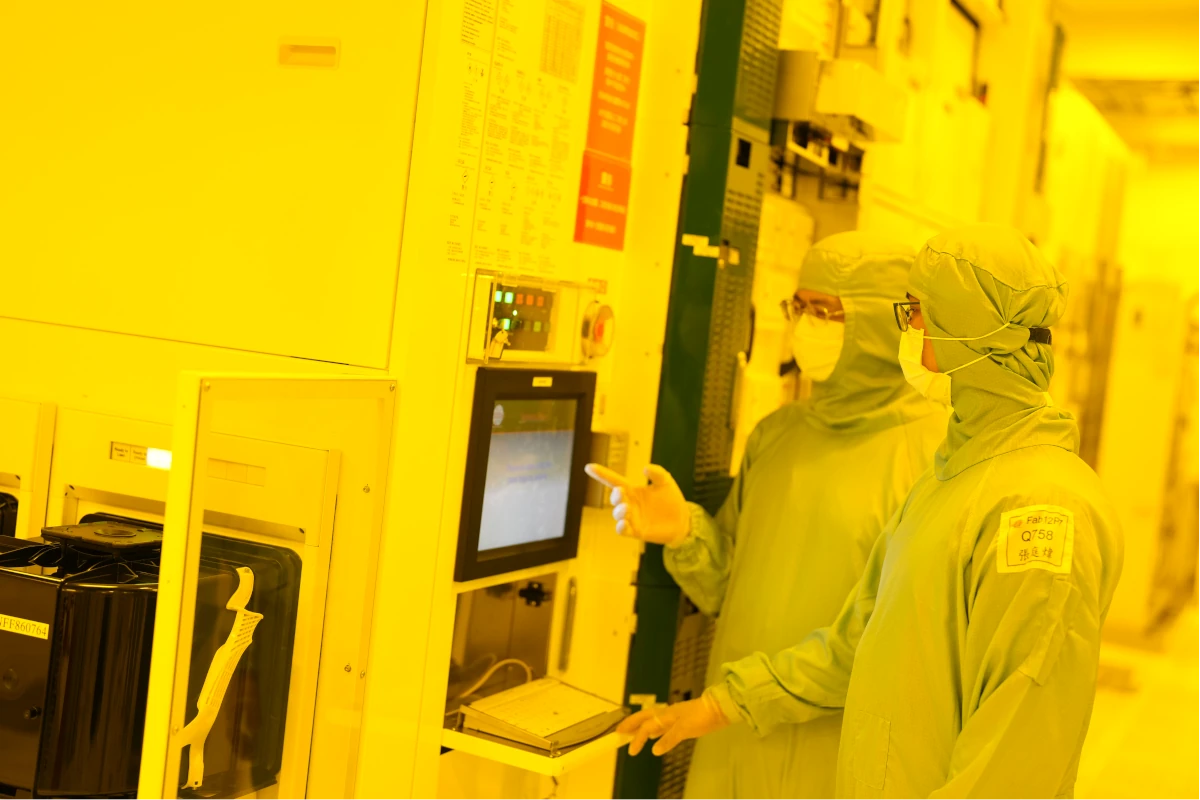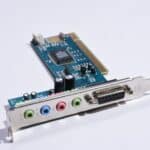Morris Chang, the founder of Taiwan Semiconductor Manufacturing Co (TSMC), has sparked controversy with his recent comments about Intel’s business strategy. Chang suggests that Intel should abandon its efforts to become a contract chipmaker and instead focus on artificial intelligence (AI). His remarks highlight the growing importance of AI in the semiconductor industry and raise questions about Intel’s future direction.
The foundry business is highly competitive and requires massive investment. Intel has a strong position in AI and should build on this strength. Other options for Intel include partnering with existing foundries or focusing on chip design and outsourcing manufacturing.
Chang’s critique comes at a pivotal time for Intel. The company has been struggling to compete in the advanced chip manufacturing space dominated by TSMC. Intel’s recent leadership change, with the departure of CEO Pat Gelsinger, has further fueled speculation about the company’s strategy. Chang argues that Intel’s resources would be better spent developing AI technologies rather than trying to catch up in the foundry business.
The semiconductor industry is at a crossroads, with AI becoming a major driver of innovation and demand. Chang’s advice to Intel reflects the broader trend of tech companies pivoting towards AI-focused products and services. This shift could reshape the competitive landscape of the chip industry in the coming years.
A Shift in Semiconductor Strategy
Morris Chang’s Perspective
Morris Chang, the founder of TSMC, recently shared his views on Intel’s foundry ambitions. He suggests Intel should reconsider its plans to become a major contract chip manufacturer. Instead, Chang believes Intel should focus on its core strengths, particularly in the area of artificial intelligence (AI). This advice comes as Intel has invested heavily in its Intel Foundry Services (IFS) division, aiming to compete directly with TSMC and Samsung in the foundry business.
The Challenges of the Foundry Business
The foundry business is extremely capital-intensive. It requires massive investments in advanced manufacturing facilities. These facilities, known as fabs, cost billions of dollars to build and equip. The technology also changes fast. This means companies must constantly upgrade their equipment to stay competitive. This requires even more money. TSMC has mastered this over decades. They have built a strong ecosystem of suppliers and customers. Catching up is very difficult.
Intel’s AI Opportunities
Chang believes Intel has a significant opportunity in the AI sector. Intel has a strong history in central processing units (CPUs). These CPUs are still important for many AI applications. Intel is also developing other AI-focused hardware, like specialized accelerators. Focusing on this area could be a more effective strategy for Intel. It could allow them to leverage their existing expertise and resources.
Alternatives for Intel
If Intel reduces its foundry ambitions, they have other options. They could partner more closely with existing foundries like TSMC. This would allow them to access advanced manufacturing processes without the huge investment. Intel could also focus on chip design and architecture. They can then outsource manufacturing to other companies. This is a common practice in the semiconductor industry known as a fabless model.
Pros and Cons of Each Strategy
Foundry Focus
- Pros: Potential for high revenue if successful, greater control over manufacturing.
- Cons: Enormous capital investment, very high risk, difficult to compete with established players.
AI Focus
- Pros: Leverages existing strengths, less capital intensive, strong growth potential in the AI market.
- Cons: May limit long-term growth if the foundry market consolidates further.
Fabless Model
- Pros: Lower capital investment, focus on design innovation.
- Cons: Dependence on external foundries, less control over manufacturing.
Recommendation
For Intel, focusing on AI seems to be a more practical strategy. The foundry business is very competitive. It requires huge financial resources. Intel has a strong position in the AI market. They should build on this. This approach offers a better chance of success.
Questions You Might Have
- Why is the foundry business so hard? It requires huge investments and constant technological updates.
- Can Intel still be successful without a strong foundry presence? Yes, many successful chip companies use the fabless model.
- What is the future of the semiconductor industry? The industry will likely see more specialization. Companies will focus on their core strengths.
Comparison Table
| Strategy | Investment | Risk | Potential Return |
|---|---|---|---|
| Foundry Focus | Very High | Very High | Very High |
| AI Focus | Medium | Medium | High |
| Fabless Model | Low | Medium | Medium |
The Importance of Chip Design and Architecture
Even if Intel scales back its foundry efforts, chip design and architecture remain crucial. The demand for specialized chips is rising, especially for AI and other advanced applications. Intel has a long history of strong chip design. They can leverage this to create innovative products even if they don’t manufacture them. This also allows them to partner with other foundries to get the chips manufactured.
Key Takeaways
- TSMC’s founder advises Intel to prioritize AI over contract chipmaking
- Intel’s recent leadership change may signal a potential shift in strategy
- The semiconductor industry is increasingly focusing on AI technologies
Industry Perspectives and TSMC’s Position
The semiconductor industry is at a crossroads. Intel, a historic leader, faces tough choices about its future. Morris Chang, founder of TSMC, a dominant force in chip manufacturing, has offered some advice: Intel should abandon its ambitious foundry plans and instead concentrate on artificial intelligence (AI). This advice highlights the intense competition and enormous costs in the chip manufacturing sector. It also points to the growing importance of AI as a key driver for the semiconductor industry. This article analyzes the various strategies available to Intel, weighing the pros and cons of each, and offers insights into what might be the best path forward for the company.
Morris Chang’s views on Intel’s strategy have sparked discussions in the semiconductor industry. TSMC’s dominance in the foundry business contrasts with Intel’s recent struggles.
Morris Chang’s Influence on TSMC
Morris Chang, TSMC’s founder, criticized Intel’s strategy of entering the foundry business. He believes Intel should have focused on artificial intelligence instead. Chang’s opinions carry weight due to his successful leadership of TSMC.
TSMC became the world’s largest contract chipmaker under Chang’s guidance. His strategic decisions shaped the company’s growth and market position. Chang’s emphasis on advanced process technologies helped TSMC stay ahead of competitors.
TSMC’s Foundry Services and Market Dominance
TSMC’s success in the foundry business stems from its focus on manufacturing excellence. The company offers cutting-edge process technologies to a wide range of clients. This strategy has allowed TSMC to capture a significant market share.
TSMC’s client list includes major tech companies like Apple and Nvidia. The company’s ability to produce high-performance chips at scale has cemented its position. TSMC’s market cap reflects its industry dominance, surpassing $600 billion in 2024.
TSMC continues to invest in advanced manufacturing capabilities. This focus on innovation helps maintain its competitive edge in the foundry business.
Intel’s Strategy and AI Focus
Intel faces a critical juncture in its business strategy. The company must navigate challenges in chip manufacturing while also positioning itself for success in the rapidly growing artificial intelligence market.
Intel’s New Strategy Under CEO Pat Gelsinger
Pat Gelsinger took the helm as Intel’s CEO in 2021 with a bold vision. He aimed to revitalize Intel’s chip manufacturing and compete directly with foundry giants like TSMC. This strategy, known as IDM 2.0, focused on:
• Expanding internal manufacturing capacity
• Increasing use of external foundries
• Launching Intel Foundry Services
Gelsinger’s plan faced significant hurdles. Intel struggled to match TSMC’s advanced nodes, leading to delays and competitive disadvantages.
The board’s recent decision to replace Gelsinger suggests a potential shift in strategy. Intel may need to reevaluate its focus on advanced manufacturing processes.
The Role of AI in Intel’s Future
Artificial intelligence presents a massive opportunity for Intel. The company has lagged behind competitors in developing AI-specific chips.
TSMC founder Morris Chang believes Intel should prioritize AI over chipmaking. This advice aligns with industry trends, as demand for AI processors continues to surge.
Key areas for Intel’s AI focus include:
- Developing specialized AI accelerators
- Enhancing AI capabilities in existing product lines
- Partnering with AI software companies
By redirecting resources towards AI, Intel could regain its competitive edge. The company’s vast experience in chip design and strong relationships with enterprise customers provide a solid foundation for AI success.







